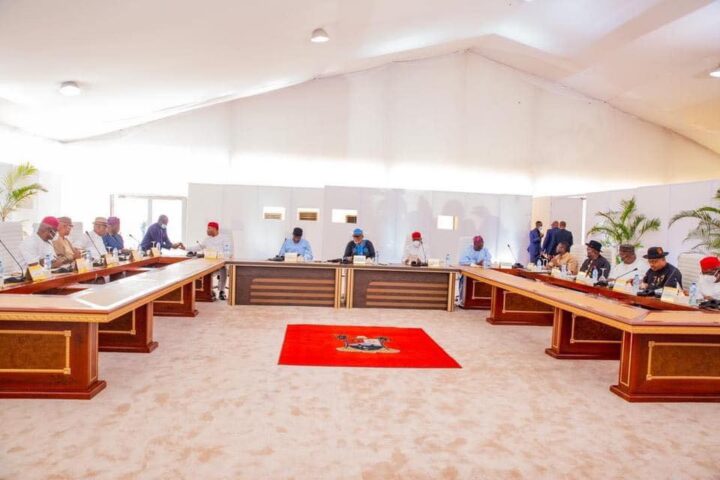Radio Now to float special programme with governance-themed interaction
In two days Classic FM 94.3, Abuja, will be three. A friend has told me that he would just like to have a discreet celebration more in observing the survival of a business in these trying times but with absolute respect to the souls that are daily lost in this life of perpetual struggle. So, more to the sobriety of the times and in strict observance of the COVID-19 protocol, he would create a convivial opportunity to celebrate the staff that have held forth in moments of economic turbulence.
The truth is that times are not ordinary in the country. Management of businesses in the present environment is first challenged by the absence of the right human capital before the environment and the skepticism of investing public. Megalectrics, broadcasters of Classic FM and other radio chain like The Beat Fm, Lagustalks and Naija FM, operating in different parts of the country, wants to give the staff a little shove of appreciation for withstanding the perilous tides.
But the celebration will also be to the credit of the progenitors of private broadcasting who saw the future and deregulated the sector in 1992 in a process that introduced the first private radio station on September 1, 1994. Raypower FM hit the airwaves that very day in what seems a pilot opportunity for private participation in broadcasting, and the wheel of fortune has moved in testimonial triumph in support of that moment of history.
The proponents anticipated plural possibilities where the private broadcaster could coexist with public broadcasters, and where big players could coexist with the very small players, indeed the inconsequential player out there whose only right to existence is the opportunity created by the government, and some level of creativity with which he hoped to distinguish his operations.
Advertisement
That is what deregulation is supposed to do: create opportunities for the rich and the not-so-rich, the big and the small, and the very ambitious and the humble enterprise, all homogenized under the codename of operator with the sole aim of fighting for a place on a platform which the owner had unwillingly yielded up. Oh, never be deceived that the government broadcasters – FRCN and NTA yielded their turfs very easily. In fact years after deregulation, after the government had set up the National Broadcasting Commission (NBC) to superintend the industry, some managers of government stations continued with their private and personal fights over an industry which didn’t belong to them. They fought their way out of reckoning while private broadcasting has been on the ascendancy.
It is to the credit of government’s sustained vision that Classic FM could raise its head in a crowded pool to call attention to deserved recognition. While it has a license to such latitude, I have never stopped asking the question, why Classic?
The word reminds of an episode I am only too happy to forget. Over two decades ago, a group which plays classical music came into Nigeria for scheduled performances around the nation. It was my unfortunate responsibility to send a reporter who was actually quite good to cover the assignment. Two days later there was no report. Where is the story my friend, I eventually asked. The reporter expressed regrets that he went there to waste a precious evening. The people didn’t play anything, he said. They will just make some noise and stop, then everybody will shout: yeeh!!! He never opened up his mind to know anything about the group. They didn’t play Reggae or Afro Beat or even hip-hop but something totally different. My reporter couldn’t imagine that anybody could sit down to endure a Beethoven music. It was my fault. I should have asked him to watch the movie, Post Cards from the Edge, before attending the concert.
Advertisement
I didn’t want to endure that level of ignorance or frustration any more. So, over the weekend I called Chris Ubosi, one of the promoters of the radio chain for information on Classic FM. His carefully chosen words helped to diminish my ignorance.
“Abuja has been most welcoming and we have taken people on a journey of self with our music, we dare say we are an addiction. We have reminded you of the good old days, when letters, flowers and true love was reality. We have diversified music, from Country to Rap, to Owambe, you name it. We have you covered and we take you back in time.”
Oh a journey to the past. Perhaps this is why oldies from Victor Uwaifo, Ebenezer Obey, Sunny Ade, Majek Fashek, Danny Wilson, Michael Jackson, Donna Summer (LaDonna Adrian Gaines), among others, still make things move in the body. Those tunes from the past which life would never be able to proscribe to the bin of irreverence, instead they are treated as the kind of wine that matures with age. Did you say Burgundy!
Classic FM journeys into the past to reincarnate some kind of music, very pure and sometimes, phantasmagoric in their presentation, to mock the young generation of Nigerians, some of whom never really saw music in its raw form, like a presentation by Fela Anikulapo Kuti or a Majek Fashek, the Rain Maker.
Advertisement
Classic FM wants to wake up the past and make it live in the present. Ubosi has always been there, working for other people subterraneously to build empires with little thought for himself. Perhaps, this is what it takes to be a faithful servant, work faithfully for others until you know well enough to work for yourself. This spirit is fast disappearing. The younger generation wants to take a leap to the moon overnight, something the Americans who planted their flag on the moon couldn’t dare.
Without wanting to lose his audience, Ubosi has his hand on the dial as the voice echoes, “In three years, Classic FM has been able to create its own lane in the market and be successful in it.”
This is a good story to tell and it clearly vindicates those who fought for private broadcasting. Successes like this justify the existence of the National Broadcasting Commission and why the body should be protected from political marauders so that there can be more opportunities for little operations that will spring surprises with their creativity.
Chris Ubosi can hold his head high but so are the workers who did not bury their creativity in smallness.
Advertisement
Views expressed by contributors are strictly personal and not of TheCable.
Add a comment







